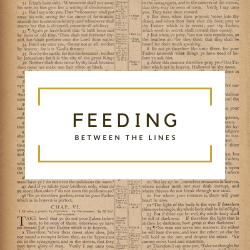
This is the verse in Psalm 91 we would rather not acknowledge, and indeed it is often skipped when the Psalm is read aloud. We like to sanitise the Bible wherever we can to avoid giving offense or stirring controversy. The word “punishment” glares at us, for we would rather retain our image of an all-loving God who no longer seeks retribution now that Jesus has turned the tables on sin. The Psalm was of course written many hundreds of years before Christ’s intervention, during Old Testament times. Punishment and retribution was then expected to follow any breaking of the Law delivered by Moses. This verse would not have seemed out of place back then.
Now-days, in the midst of the continuous existence of sin and sickness, the only thing that has changed is God’s grace; His undeserved favour to those who accept Christ as their Saviour. We no longer have to earn His blessing. This means that every sin may now be forgiven without punishment, for the penalty has already been served on Christ His son. A rough deal for him, but a “let out of jail” card for us. How then should we approach today’s verse with New Testament eyes?
We begin by recognising that “wickedness” exists. That being so, justice demands that it be addressed. A Holy God cannot be expected to look the other way; by whatever means, wrong has to be righted before it can be acceptable to Him. For those who choose not to bring their wickedness (= sin generally) to God for forgiveness, can only expect that there will be a record of it held over for the final judgement in the time to come. (2 Cor. 5:10,11) A fear of the Lord is the handbrake that comes to the aid of the Christian in times of temptation and trial. The non-believer has no such restraint, for there is no awareness of the affront to God that his/her sins have caused. Without the fear of the Lord, sin goes unchallenged and unchecked. “Wickedness” reigns.
We can do better than to skip over this verse.
Barry Struthers
Now-days, in the midst of the continuous existence of sin and sickness, the only thing that has changed is God’s grace; His undeserved favour to those who accept Christ as their Saviour. We no longer have to earn His blessing. This means that every sin may now be forgiven without punishment, for the penalty has already been served on Christ His son. A rough deal for him, but a “let out of jail” card for us. How then should we approach today’s verse with New Testament eyes?
We begin by recognising that “wickedness” exists. That being so, justice demands that it be addressed. A Holy God cannot be expected to look the other way; by whatever means, wrong has to be righted before it can be acceptable to Him. For those who choose not to bring their wickedness (= sin generally) to God for forgiveness, can only expect that there will be a record of it held over for the final judgement in the time to come. (2 Cor. 5:10,11) A fear of the Lord is the handbrake that comes to the aid of the Christian in times of temptation and trial. The non-believer has no such restraint, for there is no awareness of the affront to God that his/her sins have caused. Without the fear of the Lord, sin goes unchallenged and unchecked. “Wickedness” reigns.
We can do better than to skip over this verse.
Barry Struthers
 RSS Feed
RSS Feed